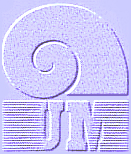|
Projects
|
Affiliations |
Newsletter |
Congress |
Resources |
||
| Worldwide mollusc species database A text published in UNITAS Newsletter 10 (July 1996) by Gary Rosenberg Elizabeth Platts reported in UMNL 9 on the Unitas CLEMAM project (Checklist of the European Marine Mollusca) and its affiliation with my Malacolog project for Western Atlantic molluscs. As editor-in-chief of the CLEMAM/MALACOLOG project, I report here on progress towards our objectives. Objective (a): with Michael Thollesson and Jacques le Renard, achieve a common standard for existing and developing databases. Partially completed at the time of the Unitas meeting, it became apparent that the working group had identified a set of fields that could track all of the kinds of taxonomic, geographic and bibliographic information desired. Only partially completed is a description of these fields and an information model showing how the fields can be efficiently grouped and linked together. Objective (b): produce relevant software by January 1996, validating it and distributing it to participants by June 1996. Software has not yet been produced and, in retrospect, four months to do this from scratch was too optimistic. We now have a talented person, Sam Garst to help with designing the database and Jacques is visiting Philadelphia in June to work with us on software development. Once the information model is finished we commence a data entry manual and the production of authority files. Jacques will develop software in FoxPro, Sam in Microsoft Access. The new deadline is December 1996. Objective (c): investigate the feasibility of a decentralized system with regional taxonomic and geographical editors with multiple entry points. In March 1996 I attended the Species 2000 workshop in Manila, as the representative for Mollusca. Representatives for 18 major taxonomic databases ranging from viruses and bacteria to legumes and Diptera, were present. A demonstration was given of a common access system for disparate databases. So long as the appropriate fields of information are available, the structure of the database can be made transparent with a query about a taxon directed to a central computer (which could be mirrored elsewhere) and routed to the appropriate database to get full information about the taxon. CLEMAM/ Malacolog has joined the Species 2000 federation, which has a goal of producing global species databases for all organisms. Each member of the federation can adopt its own database structure and access policies, so long as it freely provides a minimum set of information allowing the taxonomic status of species names to be evaluated. The mollusc databases will also form a loose federation, although with greater coordination in gathering data. Serge and Jacques have produced a WWW site for European molluscs (see below) and my Western Atlantic site, gopher://erato.acnatsci.org will soon be moved onto WWW. Objective (d): evaluate the problems of copyright and access of information via Internet. All electronic data, including email messages, are automatically copyrighted. Use of a copyright symbol is not necessary, but secures stronger legal protection. Enforcing copyright, however, is difficult. Our current model is to make information available freely on a species by species basis via gopher or similar search function. Larger sets of information would be provided on request to academic users. Fee structures need to be established for other classes of users requesting large blocks of data. Perhaps an easier solution would be to sell regional data sets on CD-ROM, rather than trying to monitor usage and fulfill requests for various data subsets. The project has been slow because no external funding has been available to support it. In December I had discussions with program officers at the United States National Science Foundation (NSF) about possible funding for a worldwide molluscan database. However, NSF is not interested in being the sole supporter for such a project; it would have to involve other governments. NSF might be interested in discrete parts of such a project (e.g. Western Atlantic bivalves, North American freshwater gastropods). The Species 2000 federation should be able to coordinate international funding for species databases. Once the software discussed above is available, three things will be needed: lists of names, lists of geographic localities, and lists of references. Integrated lists can serve as authority files to standardize data entry not only for species databases, but also for museum collection databases. Anyone who is able to contribute such lists, or other information, please contact me. Gary Rosenberg, Academy of Natural Sciences, 1900 Benjamin Franklin Parkway, Philadelphia, PA 19103-1195 USA. |
||||||
